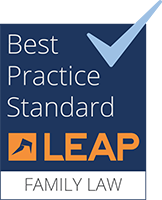What happens when a divorced or separated parent decides to relocate with their child?
If one parent wishes to relocate with their child, it can become particularly difficult for the parent left behind. When it comes to the law surrounding relocation following a divorce, the concept of Parental Responsibility is key.
What is parental responsibility?
Parental Responsibility is 'all rights, duties, powers, responsibilities and authority' which a parent has in relation to their child. When a child is born, the mother is automatically accorded parental responsibility, as is the father if he is married to the mother at that time. In cases where the parents are not married, but the father is registered on the birth certificate and the child was born after December 1 2003, he will also automatically acquire parental responsibility. Otherwise it can only be acquired through agreement with the mother or by a court order.
Put simply, parental responsibility refers to the power of the parents to make decisions on behalf of a child. Most decisions made by parents do not require the consent of the other parent, but some do, such as changing a child's name or relocating to a jurisdiction outside of the UK. Permanently relocating abroad without the consent of all parties with parental responsibility is a criminal offence.
Best practise when relocating within the UK
If a parent has decided to relocate with their child within the jurisdiction of England and Wales, this will affect major aspects of the child's life, including where they live and where they attend school, and all of this will significantly impact upon the amount of time the other parent has with their child. The parent who wishes to move must consult and obtain the written consent of the other parent with parental responsibility.
If the other parent is not consulted and opposes the move, they may seek to prevent the relocation by applying to the Court for a Child Arrangements Order.
Child Arrangements Orders determine which parent the child shall live with and the contact with the other parent.
For advice please call or email us. This article does not constitute legal advice and you should seek advice regarding your own specific circumstances.


Comments are closed.